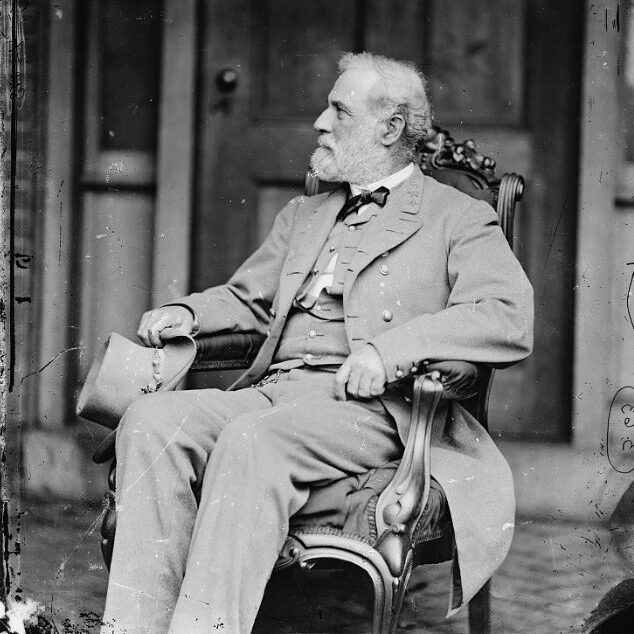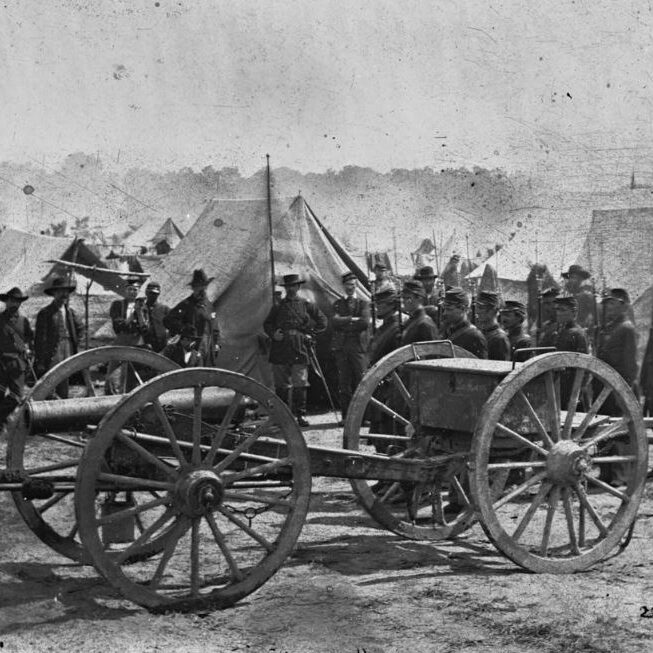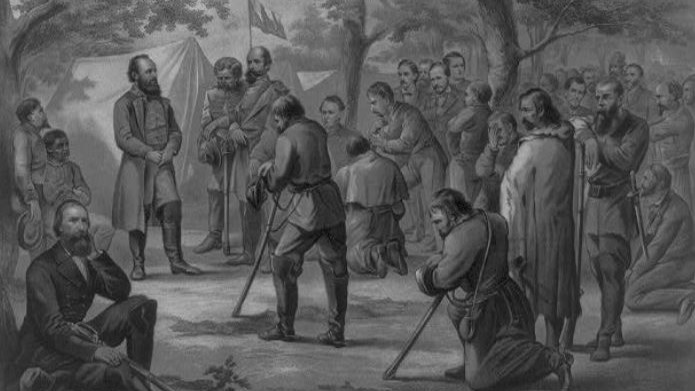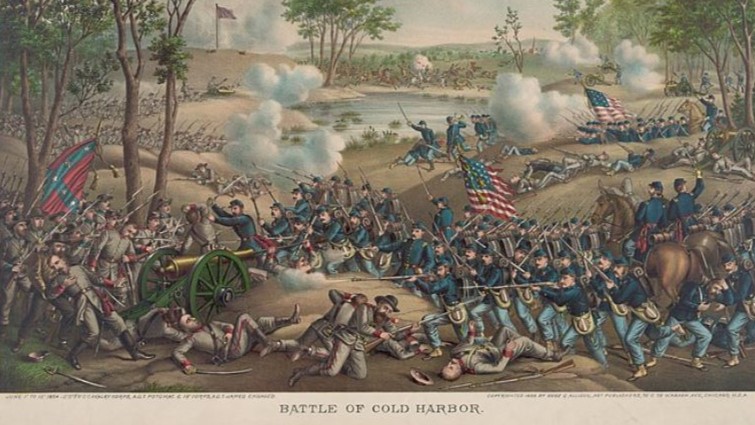Robert E. Lee was the most renowned Confederate general of the American Civil War, leading the Army of Northern Virginia against the Union forces.
As the military advisor to President Jefferson Davis and the commanding general of the Confederate Army, Lee’s role was pivotal in the bloody conflict that tore the United States apart between 1861-1865.
From the Confederate perspective, Lee was a brilliant strategist and inspirational figure. To the United States, however, he was a rebel who had committed treason by taking up arms against the federal government and Constitution he had sworn to uphold as a West Point graduate and U.S. Army officer.
Despite being one of the most iconic and highest-ranking Confederate leaders, Robert E. Lee faced relatively lenient consequences in the aftermath of the Civil War’s conclusion.
In this article, we explore how was Robert E. Lee punished after the Civil War.
1. Robert E. Lee’s Surrender at Appomattox Courthouse
On April 9, 1865, Confederate General Robert E. Lee surrendered to Union General Ulysses S. Grant at the village of Appomattox Court House, effectively ending the American Civil War.
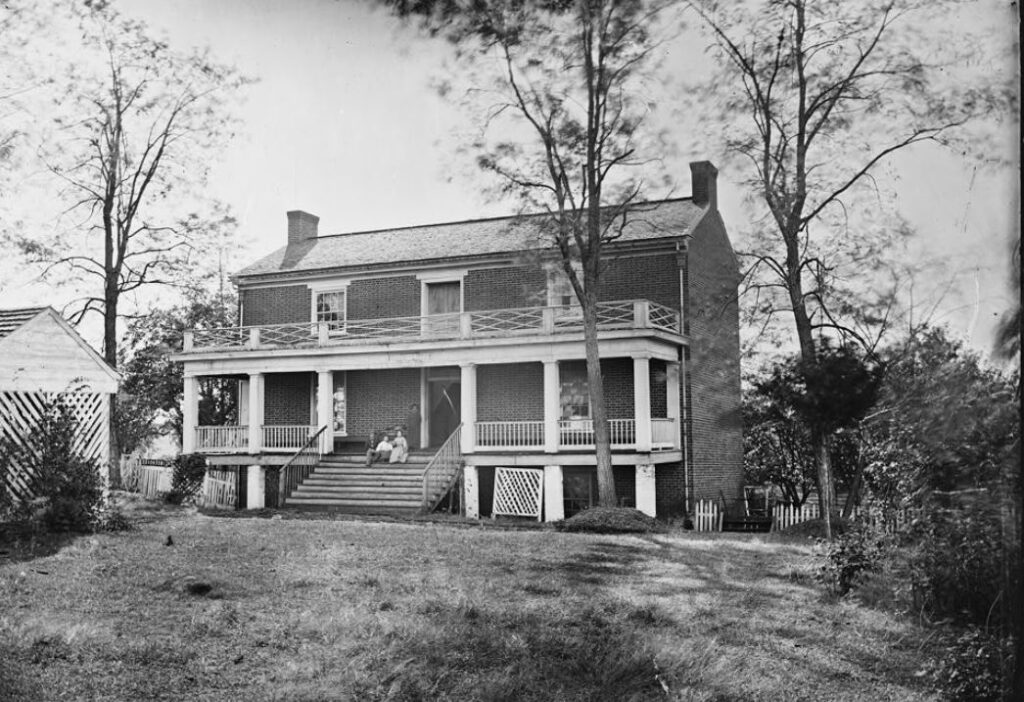
The surrender came after a long and bloody conflict that had claimed the lives of hundreds of thousands of Americans.
Lee’s Army of Northern Virginia was surrounded and outnumbered by Grant’s forces. Lee had hoped to break out, but his plans were thwarted by Union cavalry. With his army on the verge of starvation, Lee sent a message to Grant requesting a meeting to discuss surrender terms.
Grant and Lee met at the McLean House in Appomattox Court House on April 9th.
The two generals had known each other before the war, and they respected each other’s military abilities.
Grant offered generous surrender terms to Robert E. Lee. He allowed the Confederate soldiers to keep their horses and sidearms, offered basic rations and he promised that they would not be prosecuted for treason.
Robert E. Lee accepted Grant’s terms, and the surrender was formalized in writing. The Army of Northern Virginia laid down its arms.
Lee’s surrender at Appomattox Court House was a turning point in American history. It marked the end of the Confederacy and the preservation of the Union.
It also began the process of reconciliation between the North and the South.
2. Charges of Treason and Potential Consequences
In the immediate aftermath of the Civil War’s end, there were widespread calls for President Abraham Lincoln to make examples of Robert E. Lee and other top Confederate leaders through charges of treason or war crimes.
During the Civil War, many people in the North believed that the Confederate leaders were guilty of treason for taking up arms against the United States.
Treason is a serious crime that is defined as levying war against one’s own country or giving aid and comfort to its enemies.
If Robert E. Lee and the other Confederate leaders had been convicted of treason, they could have faced the death penalty.
However, President Lincoln was more focused on binding the nation’s wounds than further inflaming tensions through harsh punishments and retaliation.
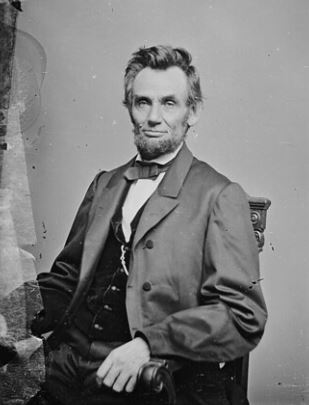
President Abraham Lincoln believed that the best way to heal the wounds of the war was to offer amnesty to the Confederates and to move forward in a spirit of peace and reconciliation.
In his Second Inaugural Address, President Abraham Lincoln famously said:
“With malice toward none, with charity for all, with firmness in the right as God gives us to see the right, let us strive on to finish the work we are in, to bind up the nation’s wounds.”
President Abraham Lincoln
Lincoln’s policy of amnesty and reconciliation was controversial at the time. Some people believed that the Confederate leaders should have been punished more severely for their roles in the rebellion. But it ultimately helped to reunite the country after the war and avoid further bloodshed.
3. Amnesty, Pardon, and Loss of Rights
President Andrew Johnson became president upon the assassination of Abraham Lincoln.
On May 29th 1865 President Andrew Johnson issued a broad Amnesty Proclamation to all former Confederates who signed the Oath of Allegiance but he excludes all who have held civil office under the Confederate government and people with an estate valued at over $20,000.
This proclamation was part of a broader effort to reconcile the North and South after the bloody Civil War.
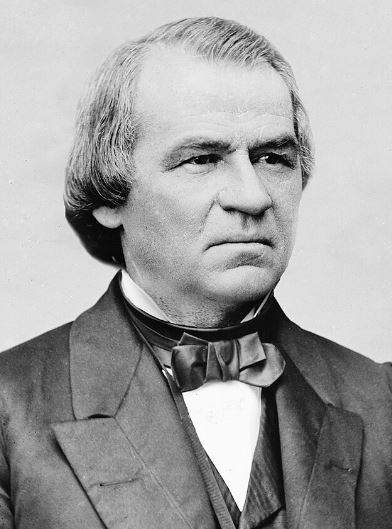
Lee’s Pardon Request
On June 7th 1865, Robert E. Lee is indicted for treason. But on June 13th, Lee encloses in a letter to General Grant his application for pardon.
Lee did not sign the Oath of Allegiance to the United States though because word of this requirement had not reach Virginia.
He would later sign the oath in October 1865. However, due to bureaucratic reasons, this oath wasn’t properly documented and remained undiscovered until after his death.
Upon receiving the request in June 1865, Grant requested that all indictments be squashed and the pardon be granted. Prosecutors then quietly halted proceedings against Robert E. Lee, but they did not formally dismiss the charges.
However, No pardon would be forthcoming from President Johnson. And Lee was also stripped of his voting rights for several years after the war due to his participation in the insurrection.
Robert E. Lee‘s request for a pardon was controversial amongst southerners’.
In requesting a pardon it was felt that he was admitting secession, the creation of the Confederacy, and the war against the north were all wrong.
Conversely, Lee’s pardon request was used by for tens of thousands of Confederate veterans to justify their own signing of the oath to restore their own rights.
Posthumous Pardon
It wasn’t until 1975 that President Gerald Ford issued a full pardon to Robert E. Lee, officially restoring his citizenship. This happened after Lee’s oath of allegiance was discovered in the National Archives.
Arlington House
Perhaps his most painful personal loss was having his cherished family estate of Arlington House confiscated by the federal government as a consequence of his Confederate leadership role.
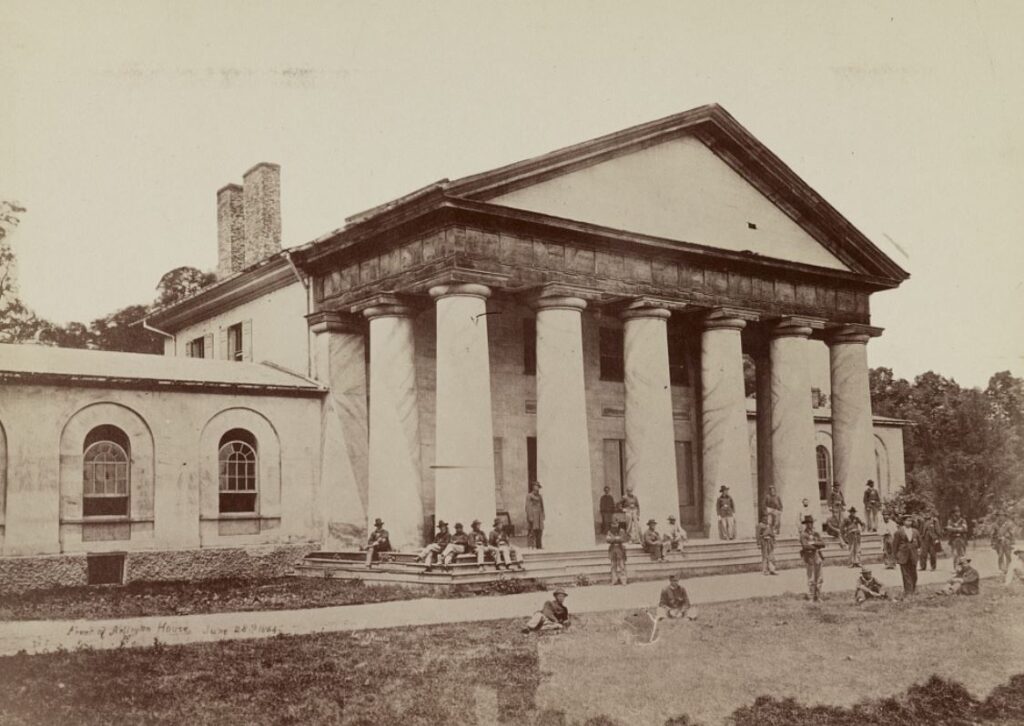
President Abraham Lincoln’s policy of reconciliation and President Andrew Johnson’s amnesty proclamation helped to avoid further bloodshed and facilitate the reunification of the country.
4. Lee’s Later Life and Legacy
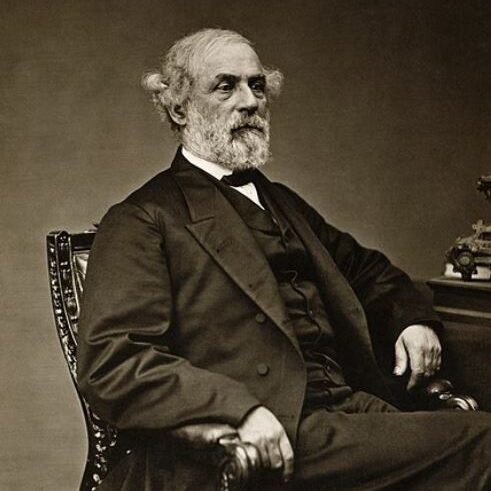
In 1865, the 59-year-old Lee accepted the position as President of Washington College in Lexington, Virginia (later renamed Washington and Lee University).
He helped guide the college through its financial troubles while also acting as an influential ambassador of reconciliation between the North and South.
Until his death in 1870, Lee drew immense respect from virtually all quarters with his calls for peacefully moving on and aiding in the healing process after the country’s darkest chapter.
Despite his integral role in the Confederate army, Lee’s honorable military conduct and his post-war dignity led many to hold him in high esteem across the reunited nation.
However, Lee’s legacy remains a complicated point of debate over 150 years later.
To some, he is an inextricable symbol of the Confederacy’s abhorrent cause of preserving slavery and white supremacy. Others view Lee as a flawed but principled leader whose memoirs urged fully accepting defeat and reuniting as one people without “hostility of mind.”
Read here for more information about Lee and his life after the war.
5. Conclusion
While he avoided facing charges for treason and any truly severe punishments, Robert E. Lee still bore the substantial consequences of losing his citizenship, voting rights, cherished home estate, and untold personal sacrifices during the Civil War.
His acceptance of the Confederate cause ultimately cost him dearly, though perhaps not as dearly as it could have.
What is clear is that President Lincoln’s policy of avoiding further inflaming hostilities, endorsed by President Johnson, was part of a broader strategy to help bind the nation’s wounds. Lee’s own post-war contrition and embracing of reunification also helped soothe resentments.
Compared to some militant Confederates, Lee conducted himself with honor, humility and a spirit of reconciliation that earned him widespread esteem. While his punishment was real, it was ultimately relatively merciful despite his leadership role in waging war against the United States. His complicated legacy will forever be a reflection of the country’s greatest calamity – and a representation of the challenging path to reunification.
Further Reading
If you enjoyed this article, you may be interested to read more about the American Civil War events, or perhaps read about the South’s important victories. Read here for more general American history.

